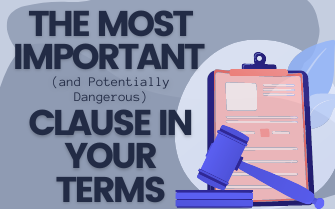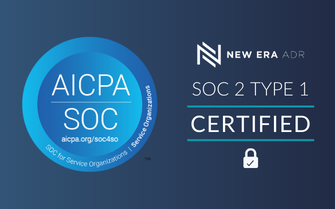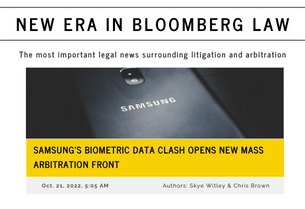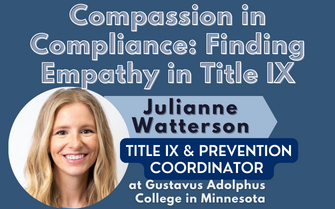
…Dispute Resolution Clause AKA Arbitration Clause AKA ADR Clause…
In almost every contract (this includes click-through terms of use, terms and conditions, terms of service, or a privacy policy) there is a clause that you have likely never paid attention to, but could massively impact your business if invoked. It may carry one of several titles: (a) “dispute resolution;” (b) “choice of venue;” (c) “arbitration;” (d) “litigation;” (e) “claims against us;” (f) “alternative dispute resolution,” or any combination or derivation of these titles.
Examples of Dispute Resolution Clauses and Arbitration Clauses
Want to see an example of a well written Dispute Resolution Clause? Check out SeatGeek’s Terms and SpotHero’s Terms.
What to see an example of an Arbitration Clause? We think these are great examples: Zynga’s Terms and Soho House’s Terms.
This Clause Dictates How that Dispute Will Be Resolved
To be clear, this is not a highly negotiated provision. It’s typically thrown in towards the end of the contract, right before the “Miscellaneous” or “General” clause and is almost always a boilerplate provision inserted without much thought about its impact. This is terrifying for one simple reason…if there is a dispute about any provision of the contract, about a party’s use of the service(s), about the manner of performance by either side, really about almost anything in the relationship, this is the clause that is going to dictate how that dispute is resolved. Seems important, doesn’t it?
So Why Don’t Parties Pay More Attention?
Well, first, there are a finite number of places that you can name as the venue to resolve a dispute. The most common provisions include a choice of (a) state and/or federal court in a designated state; or (b) a general provision stating that arbitration or mediation take place, often with a choice of one of the larger existing arbitration associations. But the reality is that either of these choices likely leave you embroiled in long-term, costly litigation if there is a dispute.
The question then becomes, what is the solution? First, it’s important to pay attention to this provision and not consider it boilerplate throw-away language. Depending on your positioning as a business, courts in certain geographic locations may pose distinct and problematic issues such as overwhelmed dockets and biased jury pools. Arbitration associations may require the use of complex rules and procedures that need to be learned (costing additional attorney time) depending on the type of dispute. Or they may not have access to neutrals with expertise in particular types of disputes dictating that additional billable neutral time will be necessary. These are real-life considerations that can drastically impact a company’s financial position if the litigation ends up being drawn out. If your company is in growth mode, but EBITDA negative, or even just earns modest revenue numbers, one long drawn-out lawsuit can effectively end your business.
Critically Think About What You Want Your Dispute Resolution Clause To Accomplish
Accordingly, you need to pay attention to these clauses and to think critically about what you want this clause to accomplish. That’s not to say you can include a dispute resolution provision that is going to guarantee you win any dispute. That’s unethical and illogical. But you can include a provision that encourages the quick, efficient, cost-effective and equitable resolution of the dispute and doesn’t rely on uncontrollable, external factors. The reality is, you may very well still lose the dispute, but it’s far better to lose fast than it is to lose after years of distracting and expensive litigation. A logical and reasoned discussion with your attorney about this clause and all of the aforementioned considerations needs to be included in the drafting of any contract or terms of use. Consideration of new platforms and technologies that focus on quick and efficient resolution of disputes is paramount. And all of this needs to happen before you actually find yourself embroiled in litigation because, at that point, you’re already too late.
Check out our Related Articles: ODR Can Be A Tool For Consumers To Resolve Disputes Quickly.

Collin is the Founder and Chairman of New Era ADR. Collin was previously General Counsel at Reverb.com, the preeminent digital marketplace for the buying and selling of musical instruments, gear and equipment. Reverb was one of Inc. Magazine’s fastest growing companies in 2017, 2018 and 2019. Collin ran Reverb’s acquisition by Etsy in 2019 for $275M.
Prior to Reverb, Collin was the first attorney at a healthcare technology start-up in Chicago that was also one of Inc. Magazine’s fastest growing companies in the country, as well as Corporate Counsel in the first cloud computing legal department of Oracle, a Fortune 100 company.
The inspiration for New Era came from the first 11 years of Collin’s practice which was spent as a litigator at Greenberg Traurig, LLP and Butler Snow, LLP where he litigated hundreds of cases, many of which he took fully through trial or arbitration/mediation.
Collin has also been a Director for Streetwise, one of the largest homeless aid organizations in the Midwest, an Associate Board Member of Make-A-Wish Illinois and a mentor with Real Industry.
Collin holds a B.A. from Middlebury College and a J.D. from Tulane University School of Law




